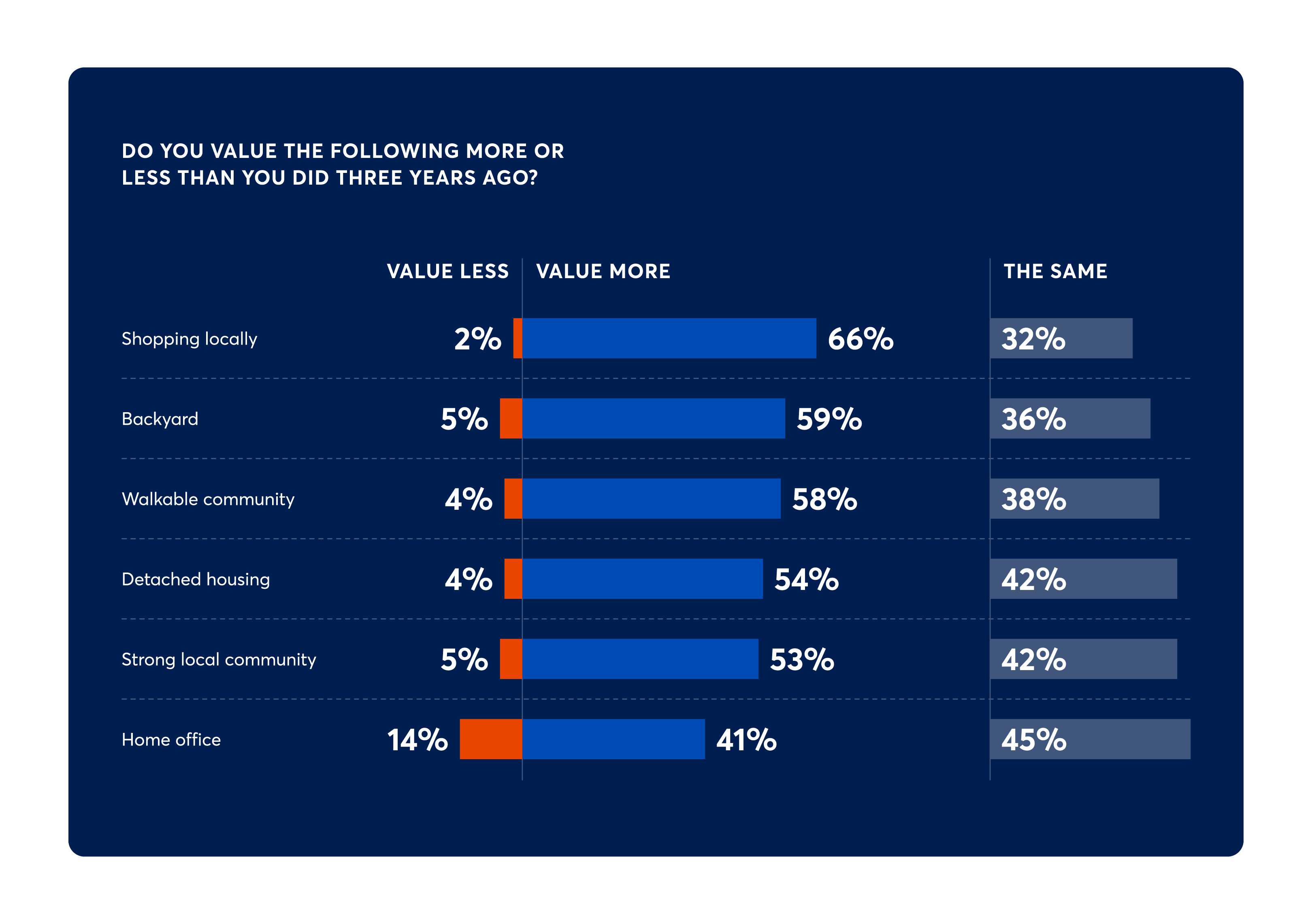Australians returning to a local lifestyle – and what it means for businesses

Consumers in the 21st century expect convenience. From next day deliveries, click-and-collect and streaming services with endless content from across the world – we are more digitally integrated and globally connected than ever before. Yet there is still something charming about the local high street. The timeless idea of being able to walk around your local area to pick up food from a market, get flowers from the local florist and see the friendly faces of those you share a suburb with.
The return to local
Although online shopping is popular, Australians are returning to the sentiment of living locally and being more conscious of buying ethically and sustainably. Two in three Aussies (66%) say they value shopping locally more now than they did three years ago. Additionally, more than half say that a backyard (59%) and a strong local community (53%) is more valuable to them now than it was three years ago.
This comes as no surprise with lockdowns across the nation leading many to explore their local area and providers. But could it be that being forced to live locally has opened Australians eyes to the idea that the local area is a place to invest and to live more communally minded?

The catalyst of COVID
With many states having experienced lockdowns, Australians have had no choice but to explore their own backyard and embrace their local lifestyle. Therefore, it comes as no surprise that Australian communities have become locally focused.
Our research has also found that Australians have changing needs when it comes to the future of housing. The WFH era has caused many to reconsider what they want from a home, with the home moving from a place of living to a place of work, schooling, living and relaxing. Further still, our research on Aussies travel plans post COVID has shown that Australians aren’t necessarily looking to travel internationally or interstate, rather somewhere regionally.
Businesses must embrace and adapt to the needs of this changing sentiment. Shifting trends will only continue to grow as the emerging generations become more socially conscious. As Australian’s become more aware of how and what they are consuming, businesses should take this opportunity to implement strategies that will not only help them succeed but also benefit the community as a whole.




